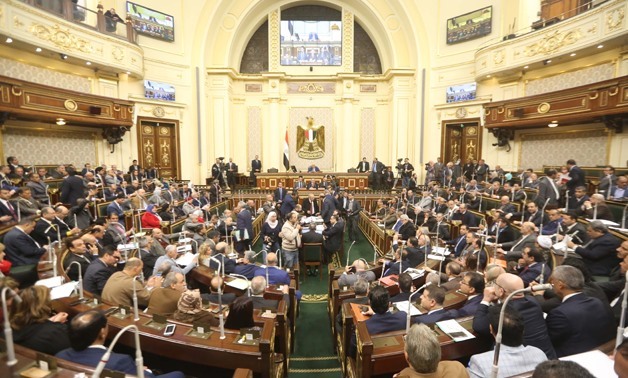
FILE - Members of Parliament start voting on the newly-proposed amendments to the 2014 Constitution on Thursday- Egypt Today/Hazem abdel-Samad
CAIRO – 2 May 2020: The African Affairs Committee at the House of Representatives will discuss on Sunday presidential decree no.145/2020 on the approval of a revised treaty of the Treaty Establishing the Community of Sahel-Saharan States (dubbed the First Treaty).
The meeting will also be attended by members of the Economic Affairs Committee, and the Defense and National Security Committee.
The Community of Sahel-Saharan States, called Cen-Sad, was established in 1998 in a conference held in Libya and attended by a number of African leaders and heads of states. Cen-Sad now has 24 members, that are Benin, Burkina Faso, Central African Republic, Chad, the Comoros, Côte d’Ivoire, Djibouti, Egypt, Eritrea, the Gambia, Ghana, Guinea-Bissau, Libya, Mali, Mauritania, Morocco, Niger, Nigeria, Senegal, Sierra Leone, Somalia, the Sudan, Togo and Tunisia.
While the First Treaty focused on cooperation among member states of Cen-Sad, the revised treaty – approved by member states in Chad on February 16, 2013 - concentrates on regional security and sustainable development.
The new treaty aims for the preservation of peace and security in the Community of Sahel-Sahran States; reinforcement of political dialogue; combat of transnational crime including human, arms, drug trafficking, money laundering, and terrorism.
Cen-Sad also targets combating desertification, drought, climate change; achieving economic, trade, scientific, social, and cultural cooperation; developing the infrastructure; and, encouraging the freedom of movement of individuals, goods, and services between member states.
In order to achieve such goals, each member state must ban the use of its lands for any activities that target the national sovereignty of fellow member states that have to exchange help when necessary, and coordinate stances on matters of mutual interest as much as possible.
Member states shall not intervene in each others' internal affairs, and abstain from taking measures that would impede the achievement of the community's goals. The body and its employees are granted the privileges and immunities provided by Vienna Convention on Diplomatic Relations signed in 1961.
The treaty will go into force when 15 member states endorse it. At present, the figure stands at 13.
The process of passing laws and treaties at the Egyptian Parliament starts with the approval of the Constitutional and Legislative Affairs Committee, then the concerned committee(s), and finally, the plenary session.


Comments
Leave a Comment